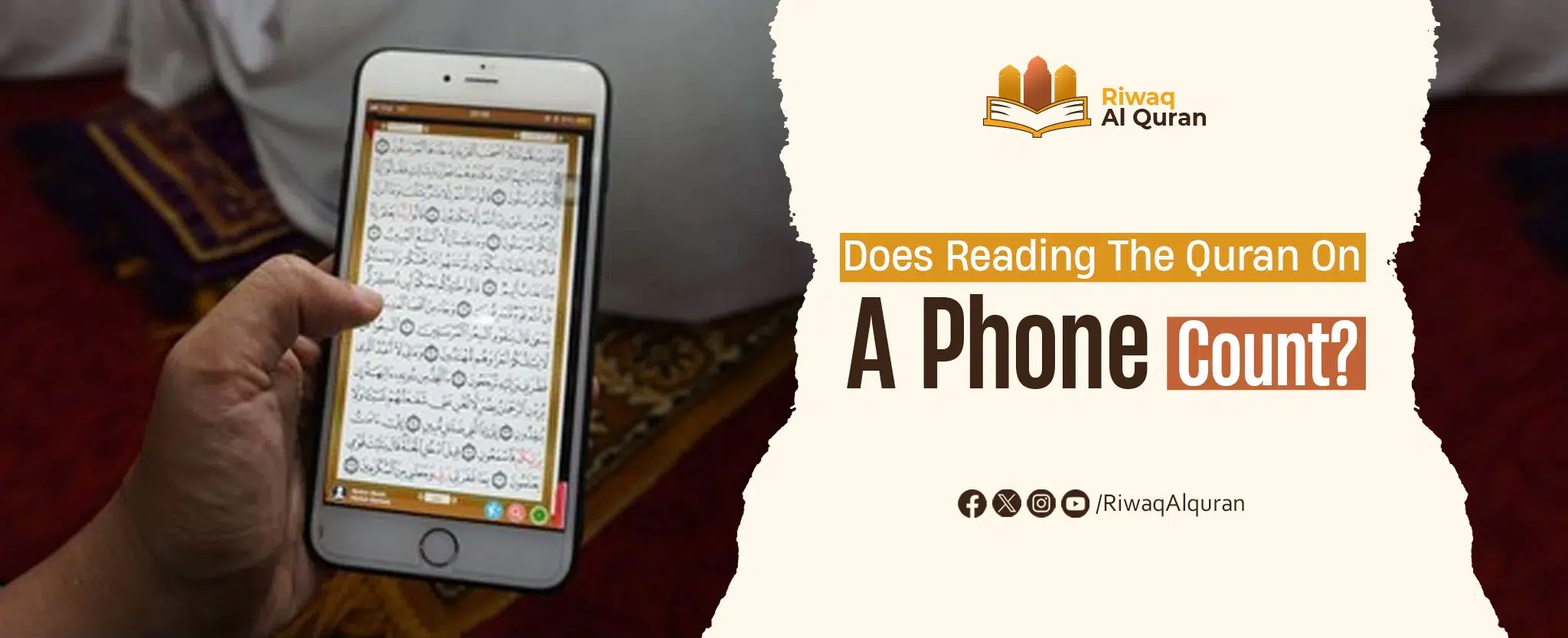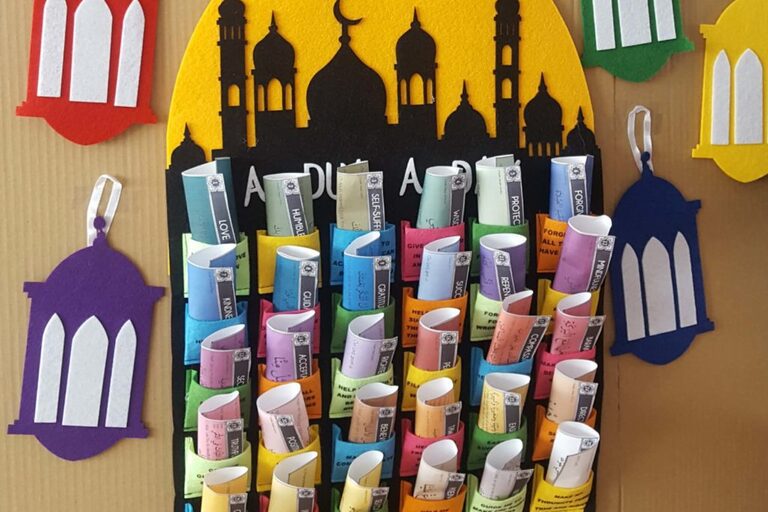In this blog post, we will discuss the ongoing debate regarding the use of technology for reading the Quran on a phone. With advancements in technology, more and more people are choosing to read the Quran on their phones or electronic devices.
However, there is a growing conversation among religious scholars and followers about whether this method of reading fulfills one’s spiritual obligations. Join us as we examine both perspectives and uncover the potential consequences of reading the Quran on a phone.
Our scholarly research confirms that reading the Quran on a phone counts as reading from a printed copy, emphasizing the importance of intention and sincerity. The reward for reading from a mobile device is not lessened, and scholars permit reading without wudu (ritual ablution) on a phone. Digital recitation is rewardable, with scholars stressing the significance of intention and cautioning against distractions.
While Quran apps offer convenience, they are not the same as physical Mushafs (printed copies). The conclusion underscores the permissibility and rewardability of listening and reading the Quran digitally, encouraging Muslims to seek knowledge and guidance from the Quran in any accessible format. It promotes Riwaq Al Quran’s online classes for learning Quran recitation with Tajweed as a means to deepen understanding and connection with the Quran.
Table of Contents
Does Reading The Quran On A Phone Count?
Yes, reading the Quran on the phone does count as reading the Quran from the Mushaf (printed copy). In today’s digital age, many people have the Quran in electronic format on their smartphones or other devices.
The intention behind reading the Quran is what truly matters, and as long as one sincerely engages with the text, it carries the same spiritual weight as reading from a physical copy.
It is important to approach the Quran with respect, regardless of the medium used for reading it. The ultimate goal is to connect with its message and seek guidance from its teachings.
Whether you prefer reading physical copies or using digital resources such as apps or online platforms like Riwaq Al-Quran to learn Tajweed recitation techniques, what truly matters is your dedication to seeking knowledge and connecting with Allah through His divine words.
Is The Reward Less If Someone Reads The Quran From A Mobile Phone?
No, the reward is not less if someone reads the Quran from a mobile phone. Reciting the Quran is highly rewarded by Allah, and the means through which it is read does not affect the reward.
The focus should be on engaging with the words of Allah and seeking guidance and understanding from the Quran, regardless of whether it is read from a physical copy or a digital device.
Islam encourages the recitation of the Quran using whatever means are available, and one will be greatly rewarded for doing so.
The intention and sincerity behind the act of recitation are more important than the medium used. As Allah Almighty says: “This is a blessed Scripture which We sent down to you [Muhammad], for people to think about its messages, and for those with understanding to take heed.” [Sad 38:29]
Can You Read The Quran Without Wudu On Your Mobile?
Yes, it is permissible to read the Quran from a mobile device or any other digital medium without wudu (ritual ablution). According to scholars, touching the electronic device or screen on which the Quranic verses are displayed does not require ritual purity.
However, it is important to note that physically touching the physical holy book, such as a printed copy of the Quran, does require wudu.
It is narrated by ‘Abdullah bin Abu Bakr (may Allah be pleased with him) that the book written by Allah’s Messenger (peace be upon him) for ‘Amr bin Hazm also contained the statement: “None except a pure person should touch the Quran.” (Bulugh al-Maram 77)
While reading the Quran from a mobile device is permissible without wudu, it is still recommended to perform ablution as a means of showing respect and veneration for the sacred text.
Is Reading the Quran On Mobile Allowed?
Yes, reading the Quran on a mobile device is allowed. While it is preferred to read from a physical copy of the Quran, using a mobile to access the Quran is permissible when a physical copy is not available.
It is important, however, to ensure that the device being used is clean and free from any inappropriate or distracting content. Additionally, one should still observe proper manners and etiquette while reading the Quran, such as performing wudu before starting, sitting respectably, and placing the Quran in a clean and elevated position.
If you are interested in learning Quran recitation online, consider enrolling at Riwaq Al-Quran, the leading international online institute that offers certified teachers and personalized guidance for individuals of all ages. Visit our website to learn more and start your Quranic journey today!


Experience Riwaq Al Quran Classes
Watch real moments from our live sessions at Riwaq Al Quran and see how we bring learning to life. These clips highlight our interactive, student-focused approach designed to keep learners engaged, motivated, and actively involved in every step of their educational journey.
Is Reading The Digital Quran Rewardable?
Yes, reading the digital Quran is rewardable. Whether one reads the Quran from a physical book or through a digital device, the act of reciting the words of Allah is greatly rewarded.
The intention and sincerity behind the recitation are what matters most. The Prophet Muhammad (peace be upon him) said that for every letter recited from the Quran, the reciter receives ten rewards.
Therefore, regardless of the medium used, reading the Quran digitally can still earn the same rewards as reading from a physical copy.
Scholarly Views on Digital Recitation
Many scholars have expressed their opinions on the use of digital devices for reciting the Quran. Here are some key points to consider:
1. The Role of Intention:
Islamic scholars highlight the significance of intention when it comes to digital recitation:
– Sincere Intentions:
Individuals need to have sincere intentions while engaging in digital recitation. The focus should be on seeking the reward and blessings of reciting the Quran, rather than solely relying on the convenience of the medium.
– Avoiding Distractions:
Scholars caution against using digital devices for Quranic recitation in situations that might lead to distractions or lack of concentration. It is important to ensure a suitable environment for meaningful engagement with the divine text.
2. Potential Limitations:
While scholars generally accept digital recitation as permissible, they acknowledge some potential limitations:
– Physical Interaction:
Scholars note that physical interaction with a traditional Mushaf, such as turning the pages and feeling the texture, can provide a deeper connection during recitation. Digital devices may lack this tactile aspect.
– Reliability of Technology:
Authenticity should be prioritized, and individuals should ensure that they use accredited versions and platforms for digital recording.
3. Personal Preference and Context:
Scholars recognize that personal preference and individual context play a role in the choice of recitation medium:
– Flexibility for Individuals:
Islam allows individuals to choose the medium that best suits their circumstances, whether it is traditional paper Mushafs or digital platforms. Contextual factors such as availability, portability, and ease of access determine personal preferences.
– Balancing Convenience and Reverence:
While digital recitation offers convenience, scholars emphasize the importance of maintaining reverence, respect, and attentiveness when engaging with divine words, regardless of the chosen medium.
Are Quran Apps The Same As Mushafs?
No, Quran apps are not the same as Mushafs. Quran apps are digital applications that provide access to the Quran in a digital format, allowing users to read, listen, and search for specific verses. They often include features such as translations, transliterations, and audio recitations.
On the other hand, Mushafs refer to physical copies of the Quran, which are handwritten or printed in book form. While both Quran apps and Mushafs contain the same text of the Quran, their formats and methods of accessing and interacting with the Quran differ.
Why Students Love Learning with Riwaq Al Quran
Hear directly from our students about how Riwaq Al Quran Academy has transformed their connection with the Book of Allah. Their experiences reflect the dedication, care, and quality that guide every step of our teaching.
Learn Quran Recitation with Tajweed from Certified Teachers:
Riwaq Al Quran provides an exceptional opportunity to learn the correct recitation of the Quran online, while also mastering the rules of Tajweed. Through their comprehensive and structured courses, students can easily receive expert guidance from qualified teachers in the comfort of their own homes.
Begin this transformative journey today by enrolling in Riwaq Al Quran’s online classes for learning Quran recitation with Tajweed. Develop a solid foundation in comprehending and implementing proper pronunciation techniques under expert guidance – all from the convenience of your home!
We offer several courses such as:
- Online courses for kids.
- Online Quran classes for kids and adults.
- Online Arabic courses
- Online Ijazah courses
- Online Islamic Studies courses.
Here are a sample of our set of Quran Courses that will be helpful for you:
- Online Tafseer Course: Delve into Quranic meanings with our insightful online Tafseer course.
- Noorani Qaida Online: Learn Quranic basics efficiently through our Noorani Qaida online program.
- Online Quran Recitation Course: Enhance Quranic recitation skills through our expert-led online course.
- Online Tajweed Classes: Master Tajweed rules for beautiful Quranic recitation in online classes.
- Quran Memorization Online Course: Memorize the Quran effectively with our specialized online memorization course.
- Online Qirat Course: Explore diverse Qirat styles with our comprehensive online Qirat course.
- Online Quran Classes for Kids: Nurture a love for the Quran in kids through interactive online classes.


Conclusion
In conclusion, according to Islamic teachings, reading the Quran on a phone or any electronic device is permissible and carries the same rewards as reading it from a physical book.
The Quran emphasizes the importance of recitation and seeking knowledge, and encourages Muslims to read and understand its teachings in any way possible.
Whether one reads the Quran from a Mushaf or a digital platform, the ultimate goal is to connect with the divine words of Allah and gain guidance for leading a righteous and fulfilling life.


































